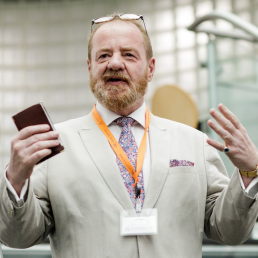During the summer in Spain religious pilgrims head west for the Camino de Santiago and come November smart city pilgrims head east for the World Smart City Congress in Barcelona. It is the premier global Smart City event held in the city that can arguably claim to have started the movement.
Last year I wrote a post-event blog likening it to Santa Claus’s Smart City Grotto and expressing concern at the lack of blue-collar solutions. This year I hope I will find:
- Blue Collar Smart City Solutions. The world is arguably in a more challenging situation than it was last year, with energy probably the greatest concern for the economically vulnerable, and cities are being asked to do more with less funding. Nothing new in that. However, Covid has not gone away, and the majority of local authority spending was already used on social care and health. Cities need to find ways to tackle energy poverty, including changing citizens’ energy behaviour. I am hoping to see that tech vendors have recognised the outcomes that cities require and are offering solutions for place-based health, behavioural change, mobility, integrated services, and greater data sharing for more targeted assistance.
- New Partner Ecosystems Between Industry Verticals. It is great to see that there will be elements of the architectural, engineering and construction (AEC) companies taking part in this year’s event. After social care and health, the second largest third-party expenditure of local authorities is on the built environment. Last year, the system shock of the pandemic and a recognition of the need to combat climate change gave COP26 the mandate it needed to put ESG and the UN SDGs centre stage. However, in recent months there has already been an element of stepping back from green initiatives as the energy crisis has risen.
A new ecosystem of stakeholders is required to deliver on the opportunity of sustainable urban development. The built environment ecosystem is a confederation of interests: national and local governments engage AEC firms that in turn are supported by technology, utilities, and energy and telco companies. Between these actors, there is alignment on the need to share data and develop a more people-centric, data powered sustainable urban environment.
The Barcelona World Smart City Congress is an important showcase of what is possible through technology and must continue to be so. Equally, as well as gazing into the future, vendors need to be offering solutions for the immediate challenges faced by cities. Let’s see what Santa has put under the tree.
A global IDC team will be taking part at the Congress, speaking and on panels such as Technology Paving Tomorrow’s Towns , Urban Readiness for Refugee Crises, and Digital Twins to AI-Powered Metaverse Design Platforms. We have a booth for the three days of the conference, and we would be happy to meet with people to discuss any of the above.
For more information on our coverage of government and the public sector, visit our website.

